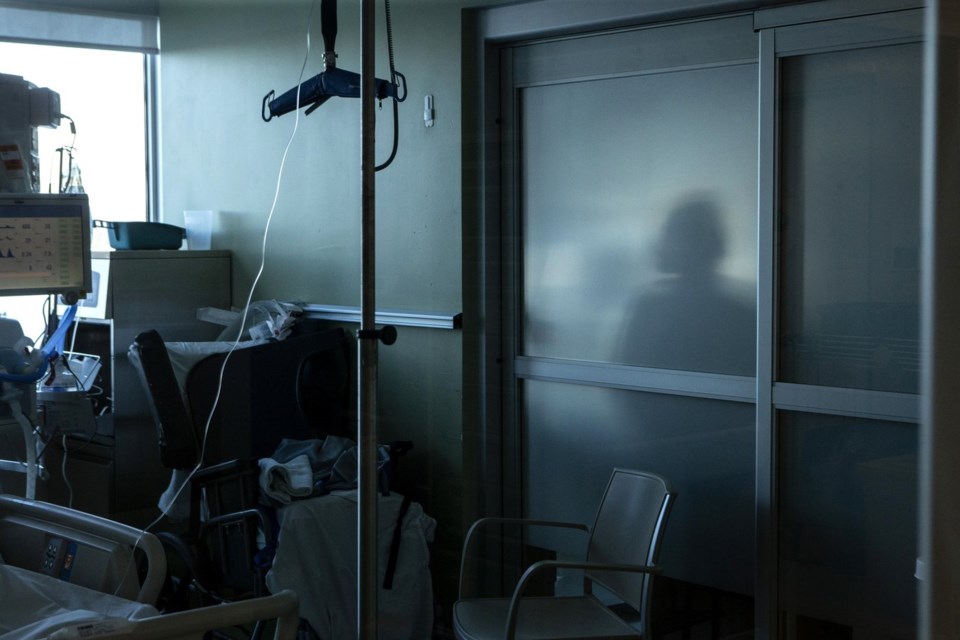FREDERICTON — The New Brunswick government revealed Thursday that it expects to spend more than it collects in revenue in the 2024-25 fiscal year as it scrambles to cover health-care expenses, including the high cost of travel nurses.
The province released a fiscal update projecting an unexpected deficit of $27.6 million for the current fiscal year, which is a sharp reversal from the $40.9-million surplus initially forecast in March's provincial budget.
Health-care costs are expected to be $164 million more than anticipated, "with a significant portion attributed to the regional health authorities and associated with the cost of travel nurses," said a government news release.
Other health-care cost overruns will come from paying out overtime, training new staff and "other supply measures," the release said.
New Brunswick has been under fire for its spending on travel nurses since a Globe and Mail report earlier this year found some provinces paid steep hourly rates to staff their health-care facilities with nurses working for private agencies.
New Brunswick's auditor general singled out the spending in a June 4 report, finding that between Jan. 1, 2022, and Feb. 29, 2024, the francophone Vitalité Health Network paid more than $123 million for travel nurses, including $98 million to Ontario-based agency Canadian Health Labs.
This fiscal year, the province expects to shell out about $97 million for travel nurses, primarily within Vitalité, Thursday's update said.
Health Minister Bruce Fitch has described the prices charged by Canadian Health Labs as "exorbitant." The company's contract with Vitalité is set to expire in February 2026.
Paula Doucet, a registered nurse and president of the New Brunswick Nurses Union, said the government should be using that money to increase pay for nurses already working in the province's public health system. New Brunswick nurses are among the lowest paid in the country, Doucet said.
"We've lost several New Brunswick nurses to these private, for-profit travel agencies," Doucet said in an interview. "If they were paid adequately, treated fairly, treated with respect, all of those things, they would have stayed here in the system."
Doucet estimated there are currently about 750 unfilled nursing jobs across New Brunswick's health-care system.
Susan Holt, Leader of the Liberal Opposition party, said the money spent on travel nurses is "very poorly spent."
"We needed investments in New Brunswick's primary care system and in New Brunswick's health-care professionals. And they didn't do that, year after year after year," she said in an interview. "And now we find ourselves spending an outrageous amount of money on a contract to a private-sector company at New Brunswickers' expense."
In a news release accompanying Thursday's update, Finance Minister Ernie Steeves said the unexpected deficit projection shows just how quickly "the fiscal situation can evolve."
“Our sound fiscal management practices put us in a position to get back on track with our budget plan,” Steeves said.
This report by The Canadian Press was first published Aug. 29, 2024.
The Canadian Press



